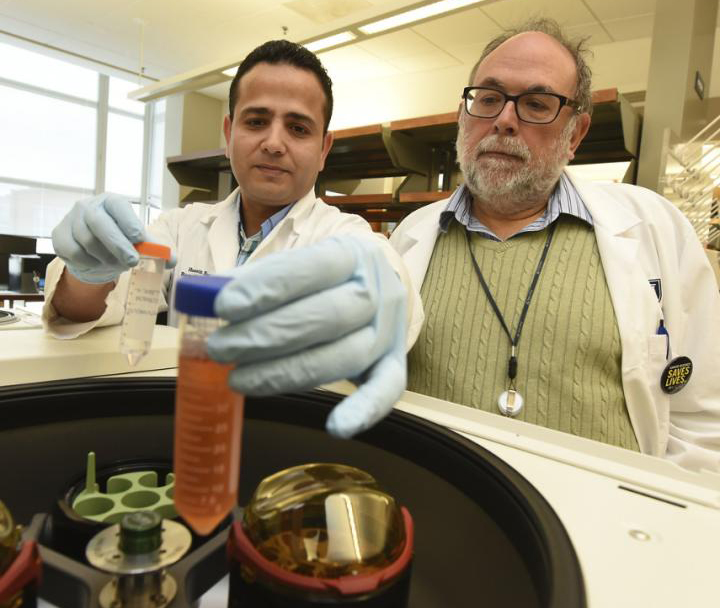Scientists at the Georgia Cancer Center at Augusta University say they have found a way to construct vaccines with a greater likelihood of finding and attacking tumors in the human body. The key in this vaccine strategy is increasing the amount of time interleukin-2 (IL-2) stays in the body since this molecule is responsible for regulating the activity of killer T cells.
The study (“Sustained Persistence of IL2 Signaling Enhances the Antitumor Effect of Peptide Vaccines through T-Cell Expansion and Preventing PD-1 Inhibition”) is published in Cancer Immunology Research.
“Peptide vaccines can be a successful and cost-effective way of generating T-cell responses against defined tumor antigens, especially when combined with immune adjuvants such as poly-IC. However, strong immune adjuvants can induce a collateral increase in numbers of irrelevant, nonspecific T cells, which limits the effectiveness of the peptide vaccines,” write the investigators.
“Here, we report that providing prolonged IL2 signaling in the form of either IL2/anti-IL2 complexes or pegylated IL2 overcomes the competitive suppressive effect of irrelevant T cells, allowing the preferential expansion of antigen-specific T cells. In addition to increasing the number of tumor-reactive T cells, sustained IL2 enhanced the ability of T cells to resist PD-1 induced negative signals, increasing the therapeutic effectiveness of the vaccines against established tumors. This vaccination strategy using peptides and sustained IL2 could be taken into the clinic for the treatment of cancer.”
“After administering peptide-based vaccines in mouse models of cancer, we saw that sustained IL-2 signaling dramatically increased the number of tumor-specific cancer-killing T cells (CD8+),” said Hussein Sultan, Ph.D., a postdoctoral fellow in the laboratory of Esteban Celis, M.D., Ph.D., leader of the Center's Cancer Immunology, Inflammation and Tolerance Program.
During their experiments, Drs. Celis and Sultan noticed there was also an increase in the T cells' ability to resist cancer immune evasion caused by programmed death-ligand 1 (PD-L1). It is well known that the PD-L1 protein can be produced by tumor cells, allowing them to evade destruction by the killer T cells.
“Together, these results substantially improved the antitumor efficacy of peptide-based vaccines in tumor-bearing mice,” noted Dr. Sultan.
According to Dr. Celis, “In order to be effective, IL-2 needed to be administered either as a complex of IL-2 and anti-IL-2 antibody, or in the form of polyethylene glycol-modified IL-2 (PEG-IL-2). These formulations prolonged the half-life of IL-2, allowing sustained activation of the IL-2 receptor on vaccine-generated T cells, allowing them to survive longer in the body and attack the tumor.”
He added that it is difficult for vaccines to induce antibodies against tumors because most of the tumor antigens are not foreign proteins, as is the case with viruses. On the other hand, T cells have the capacity to recognize other types of antigens.
“As we know, cancer cells are created when normal cells undergo certain mutations,” Dr. Celis said. “So, they don't always look foreign to our immune system.”
The team hopes their observations in mouse models of cancer can find their way into clinical studies with human cancer patients.






